Are you feeling weighed down by the burden of a criminal record? You're not alone, and many people are seeking a fresh start through the process of expungement. This article will walk you through a sample letter template that can help you take the first step toward clearing your name. So, let's dive in and explore how you can reclaim your future!
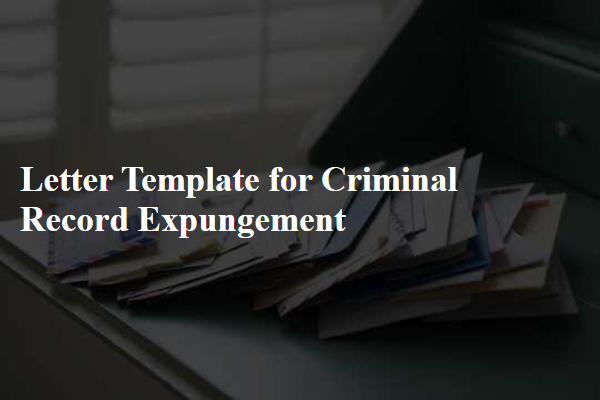
Personal Identification Information
Expungement of a criminal record requires the accurate submission of personal identification information. This includes full legal name, which may consist of first name, middle name, and last name, birthdate (month, day, year), and current address (including city, state, and zip code). Additionally, it is crucial to provide identification number such as Social Security Number or driver's license number, which establishes identity and assists in record verification. Moreover, details regarding previous convictions, including case numbers, dates of offense, and jurisdiction (location of the court that handled the case), must be clearly outlined to facilitate the process. A contact number is also recommended for any follow-up communications regarding the expungement request.
Explanation of Conviction Details
Criminal record expungement allows individuals to clear their legal history under specific circumstances. Detailed information about the conviction includes the type of offense, such as misdemeanor or felony, committed on a specific date in a designated location (e.g., county courthouse). Conviction outcomes often include sentencing details, such as fines (ranging from a few hundred to several thousand dollars) and any probation terms (usually lasting one to three years). Understanding these specifics is crucial, as jurisdictions vary in expungement eligibility, often requiring a waiting period after completing the sentence. Additionally, various factors like prior criminal history, rehabilitation evidence, and community service contributions play significant roles in the expungement process, influenced by local laws and regulations. The overall aim of expungement is to enable individuals to reintegrate into society without the stigma of past offenses affecting future opportunities.
Reasons for Expungement Request
A criminal record expungement petition aims to remove past offenses from public records, offering individuals a second chance. Individuals may seek expungement for various reasons, including employment opportunities, as many companies conduct background checks revealing convictions that could hinder job prospects. Education is another critical factor; individuals pursuing advanced degrees may face barriers due to past records. Community involvement and personal rehabilitation demonstrate commitment to societal contributions, making a strong argument for expungement. Additionally, family considerations, such as being a role model for children or seeking to adopt, further justify the necessity of a clean record. The overall goal encompasses reintegration into society and a chance to lead a more productive and law-abiding life.
Evidence of Rehabilitation
Individuals seeking criminal record expungement often present compelling evidence of rehabilitation. Programs such as community service, educational achievements, or vocational training highlight personal growth and commitment to societal reintegration. Participation in support groups, mentorship roles, and consistent employment at esteemed organizations further reinforces transformation. Testimonials from community leaders or employers serve as powerful endorsements, illustrating positive character changes and contributions to society. Documentation, including certificates or letters of recommendation, adds credibility to claims of rehabilitation, showcasing dedication to leading a law-abiding life. Demonstrating substantial and sustained efforts toward improvement is crucial in the expungement process, particularly in jurisdictions that prioritize evidence of reform.
Future Plans and Contributions
A criminal record expungement can significantly impact an individual's future opportunities and contributions to society. For example, individuals seeking employment in fields such as healthcare, education, or law enforcement often face barriers due to past convictions. Successful expungement allows individuals to apply for licenses or certifications (following regulations set by state boards) without disclosing a criminal history, leading to increased job prospects and stability. Moreover, personal growth initiatives like volunteer work, further education, or community service can enhance one's skills and networking opportunities. For instance, participating in local mentorship programs can help rebuild trust within the community, demonstrating a commitment to personal development and positive societal impact. Ultimately, expungement serves not only as a second chance for the individual but also as a pathway for contributing positively to communities, fostering a culture of rehabilitation, and reducing recidivism rates.

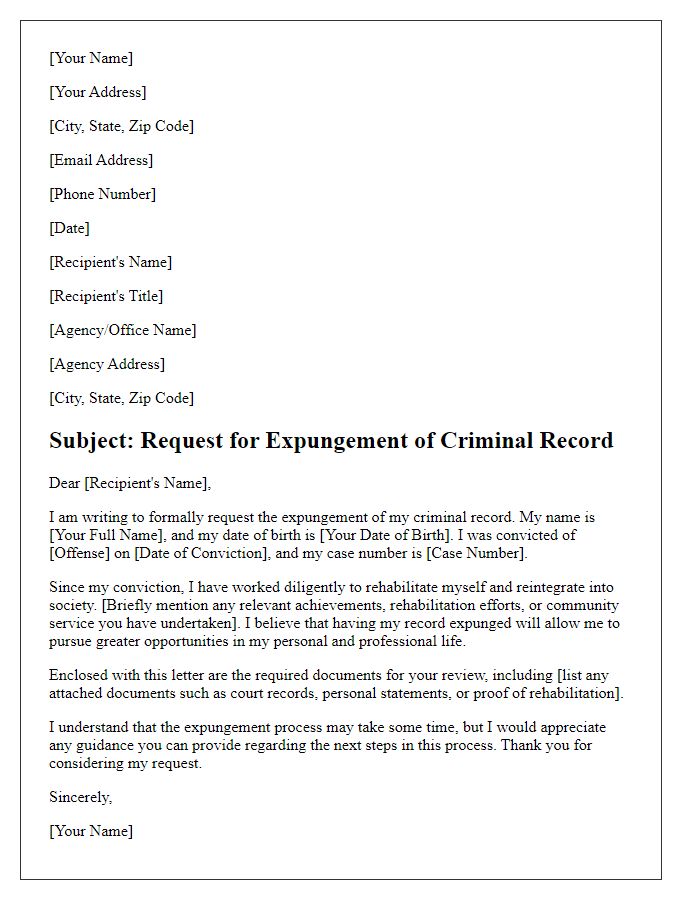
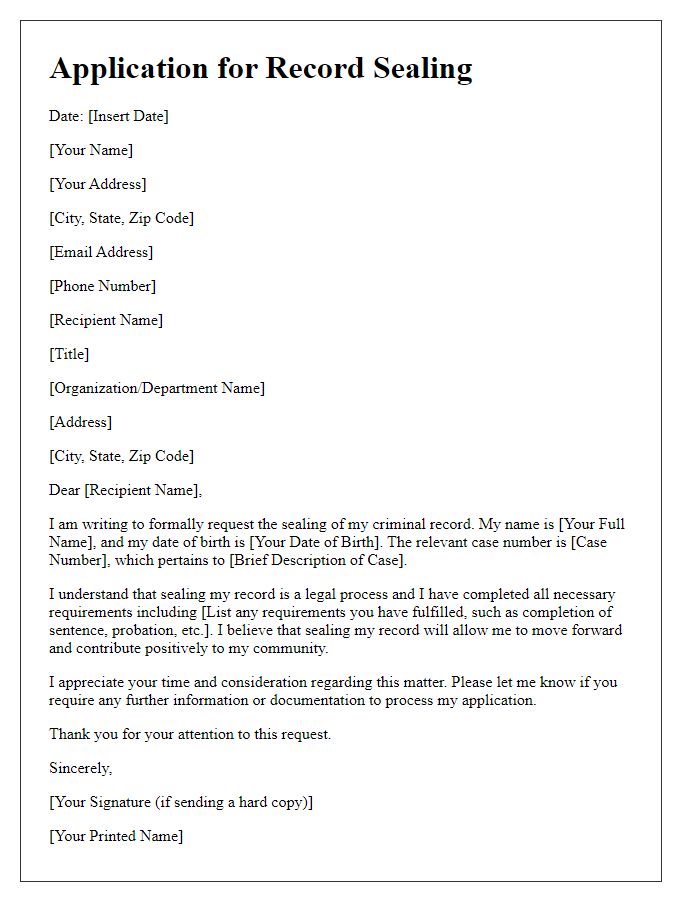
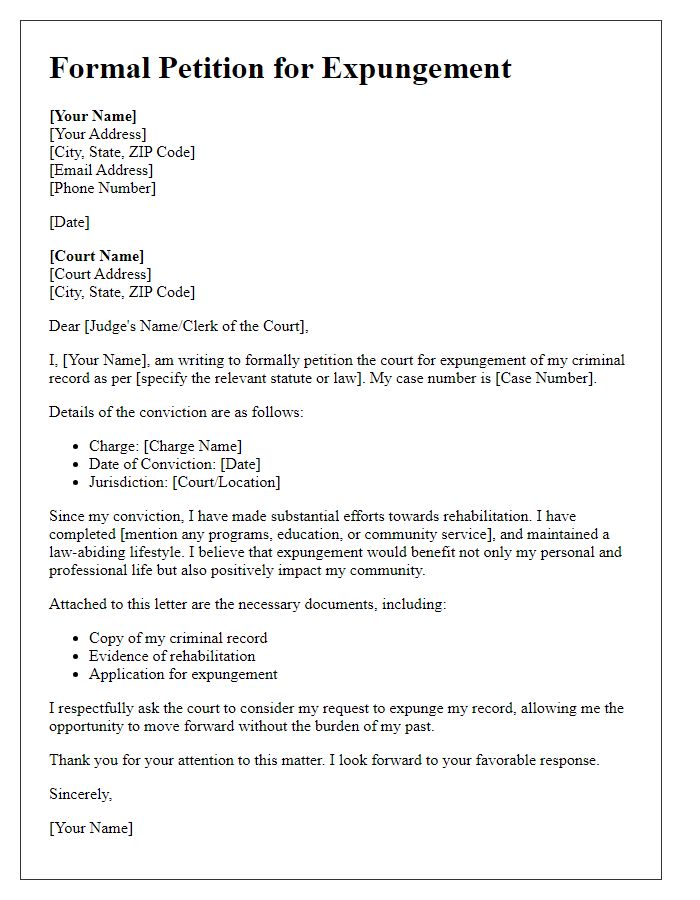
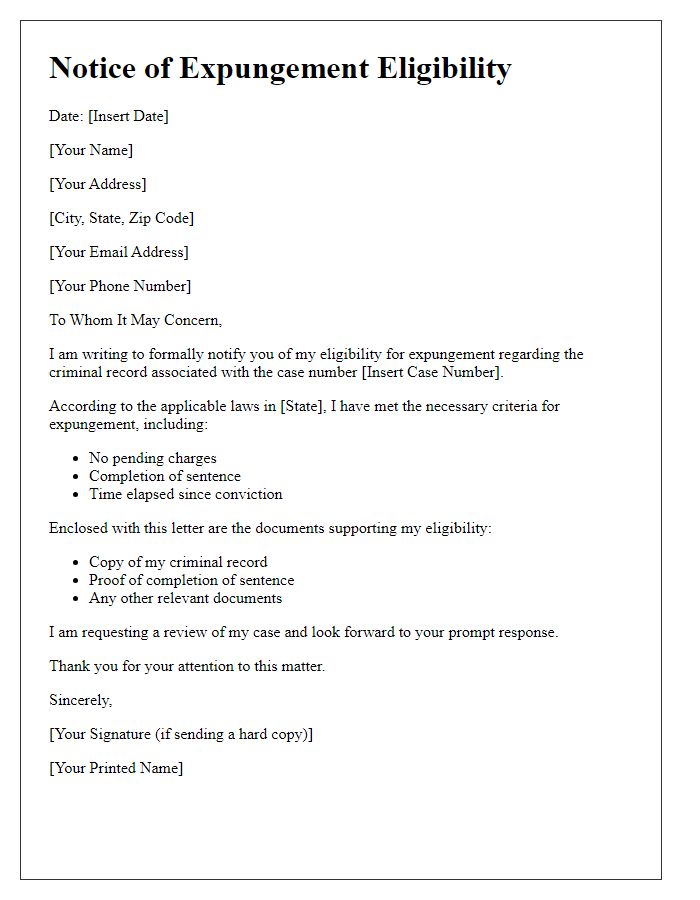
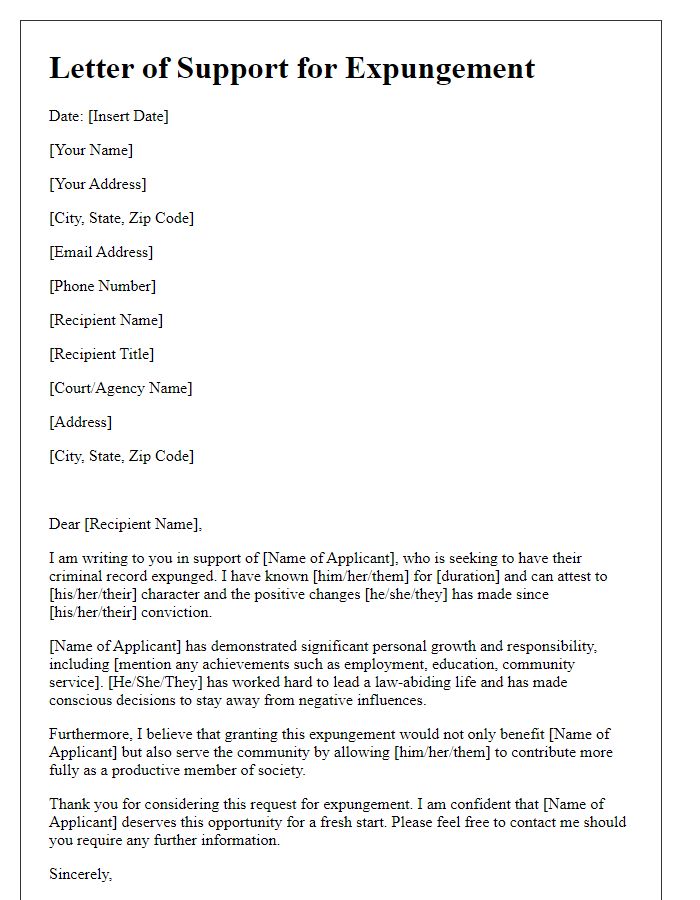
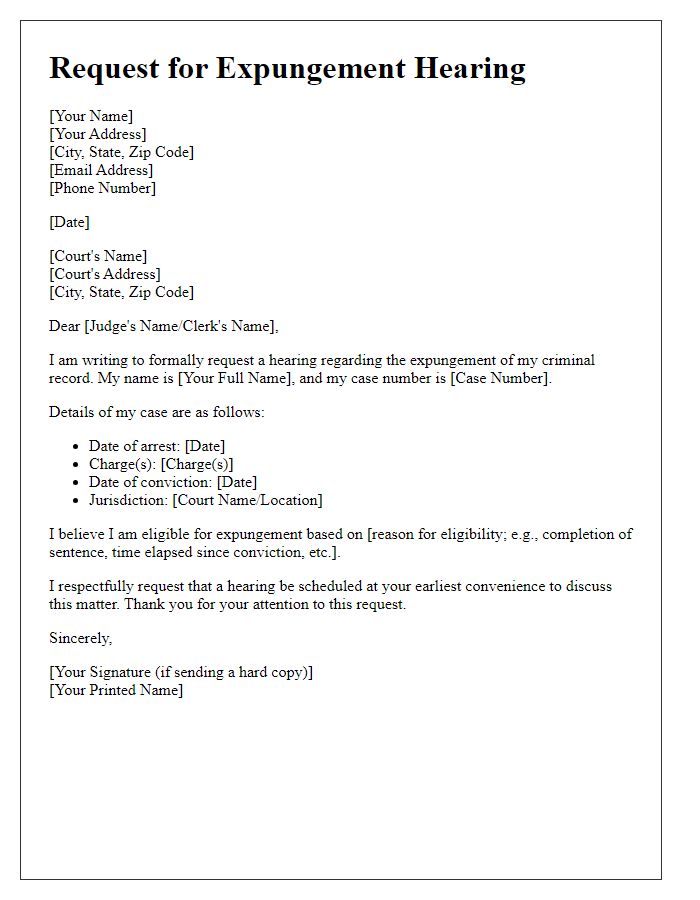
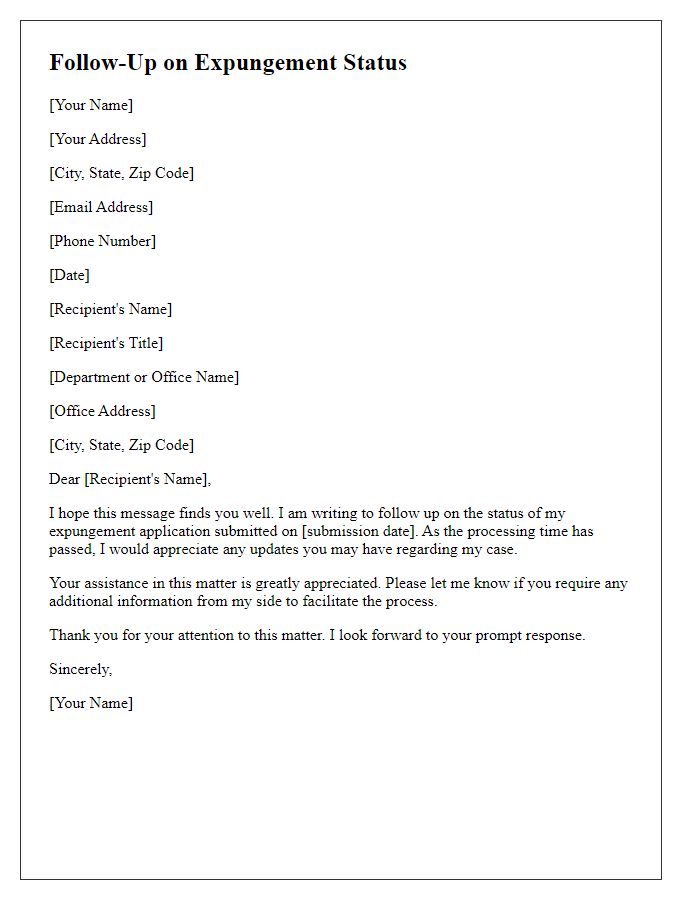
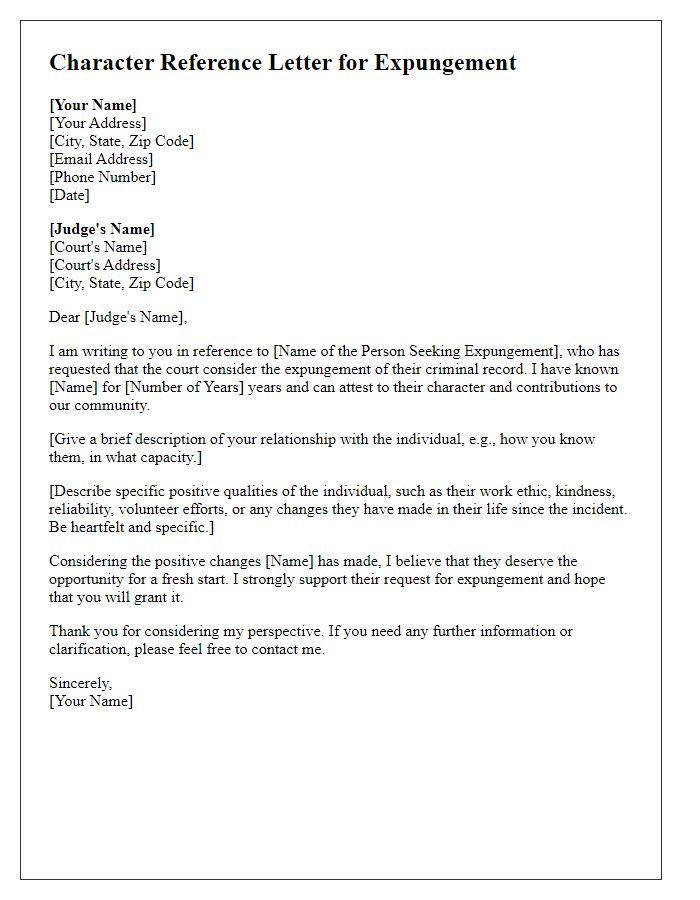
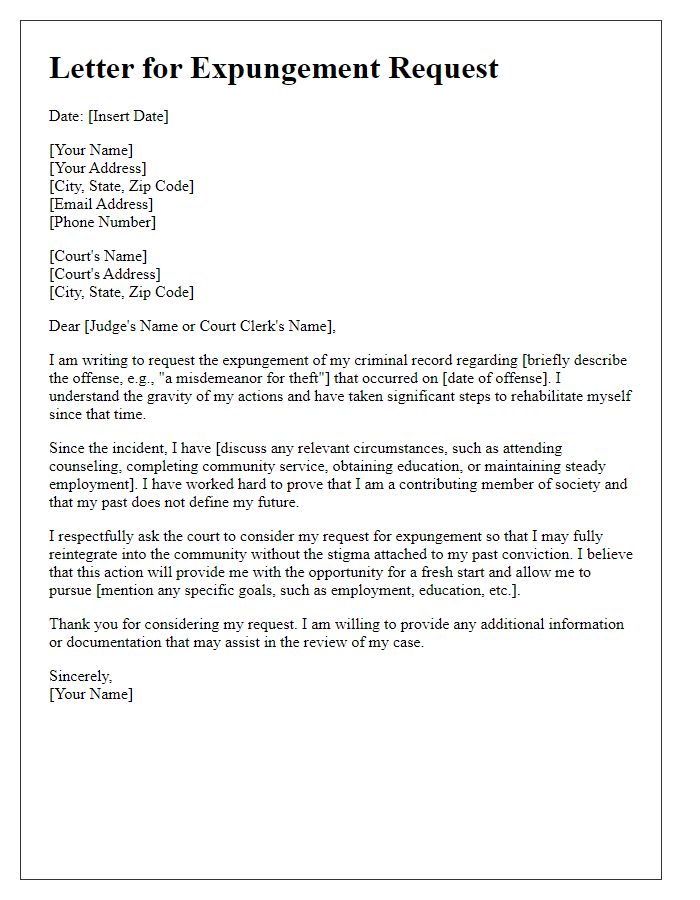
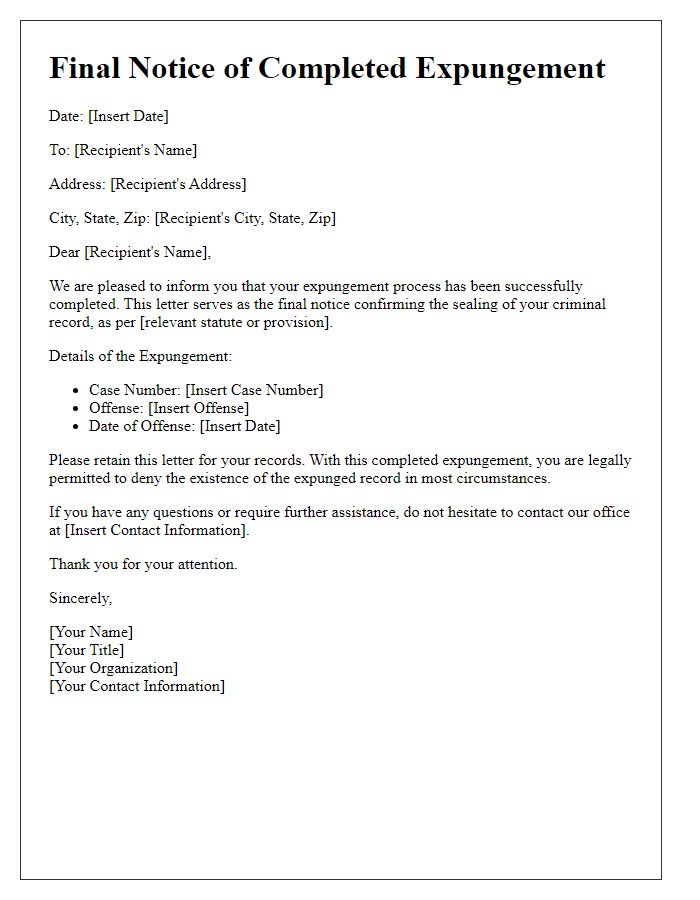

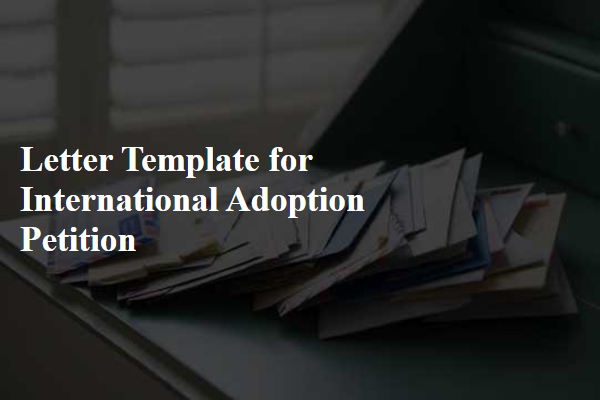
Comments